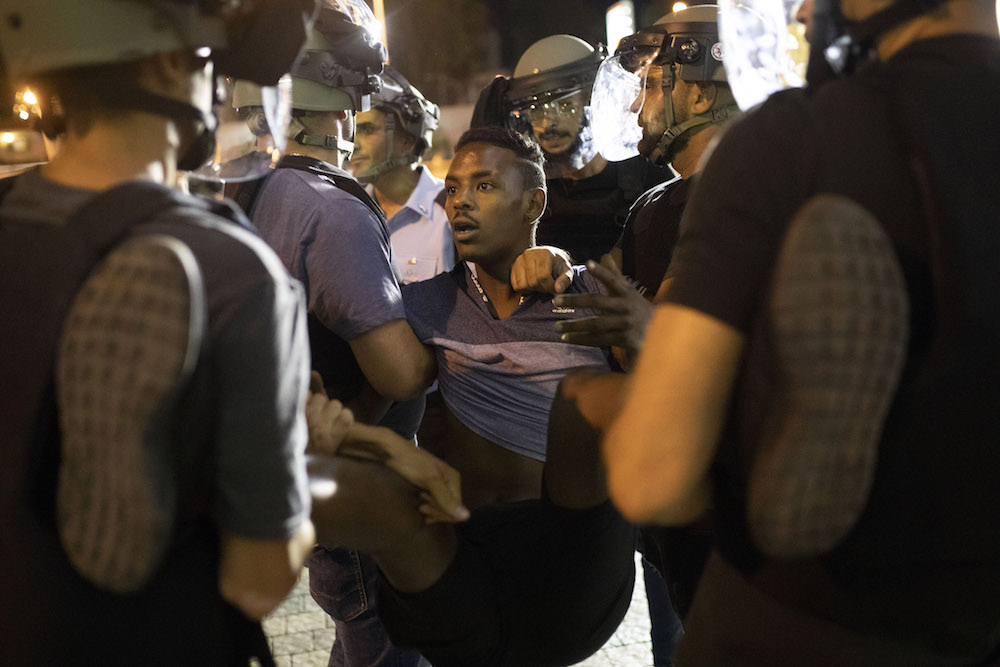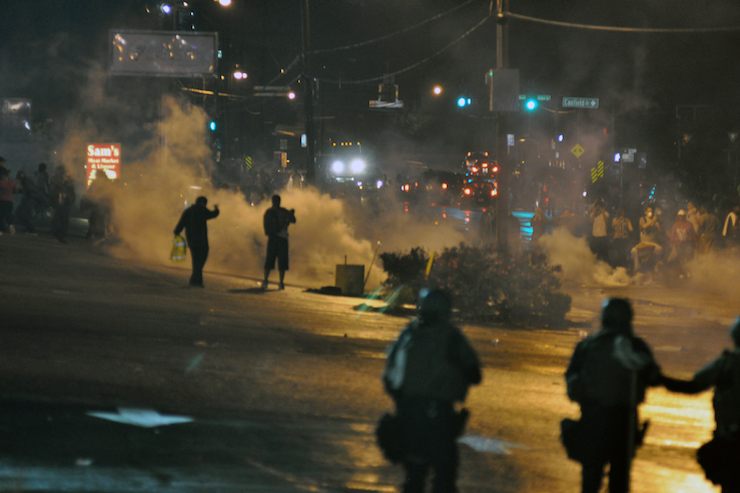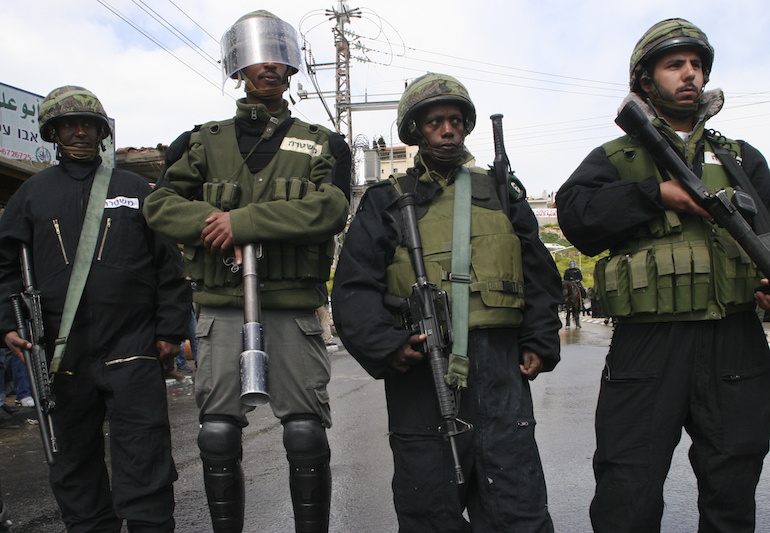Solomon Tekah was shot and killed by an Israeli police officer because he was black. As a Palestinian I know exactly what that feels like.
By Ashraf Ghandour

For over a week I have watched Ethiopian Israelis conduct a loud and righteous struggle against the systematic racism that has held them down for 35 years. As a Palestinian, as a person of color, I could not help but feel empathy for their pain, along with a strange sense of bewilderment when I saw Israelis of all stripes failing to connect the just struggle of Ethiopians to those of other groups oppressed by Israel.
But Solomon Tekah was shot because he was Black, and because I am a Palestinian I had to keep listening closely.
Tekah, a 19-year-old Ethiopian Israeli man, was shot in his own neighborhood last week by an off-duty police officer in a suburb of Haifa. Following the shooting, thousands of members of the Ethiopian community took to the streets to protest the way their people are being treated by law enforcement, in an attempt to draw public awareness to the oppression Israelis of Ethiopian decent have faced since they began immigrating to Israel in the mid-80s.
Yet the Israeli media immediately chose to focus on the violence and acts of vandalism by some Ethiopian protesters against police, including by dehumanizing the protesters and calling them “animals.” Much of the coverage revolved far more around the way white civilians were affected by the disruptions on Israel’s main roads than the plight of the protesters themselves.
I heard academics of Ethiopian descent speak on behalf of the protesters, comparing their fight to that of the Black communities in America thousands of miles away. Yet the majority of those who spoke publicly actively ignored the plight of four million Palestinians held in the open-air prisons of the West Bank and Gaza, as well as the 1.9 million Palestinian citizens of Israel who make up 20 percent of the population but make up over half of its prison population.
Palestinians who point out that these two forms of oppression are born of the same oppressor have been met with resistance from the Ethiopian community, which prefers to distance itself from such associations.
Solomon’s killing, and the response by most Israelis, is reminiscent of the police killing of Michael Brown in Ferguson, Missouri, which were followed by mass protests by the black community there. While the protests ramped up, many white Americans were busy deliberating the validity of the use of violence by Black protesters, shifting the focus away from police brutality and the story of a dead 18-year-old they were hired to protect.

Meanwhile, the Ferguson protesters were learning how to face tear gas from Gazans — who were in the midst of the 2014 Gaza war — via Twitter. It was a political moment that helped deepen the solidarity between the Palestine solidarity movement and Black Lives Matter. Yet this kind of solidarity seemed to be completely lost on those who spoke on behalf of the Ethiopian community in Israel over the past week.
Palestinians do not need to be versed in political theory to know where the Ethiopian struggle is heading. We are too familiar with persecution, incarceration, dehumanization and the lack of Israeli allies who will stand with us in real solidarity. We have seen our plight turn into a watered down argument about the use of violence in protests; we have heard the words “you lost me when you threw the first stone”; we have been victim blamed and cornered until we condemn violent acts by handfuls of protesters, all while our message is slowly buried alongside the victims of occupation and brutality. We have been tear-gassed, arrested and shot, and when we saw the young Ethiopian protester stand on top of a moving car, pounding his fists on the windshield, his frustration and anger rang all too familiar.
But the distance between empathy and solidarity is a great one. After all, it is your faces we see and your hands under our clothes at the checkpoints. Your armed men, many as young as Solomon, are sent to guard settlements and raid the homes of our refugee camps. Perhaps your blindness to our cause is the result of a commitment to fight a common enemy.

When Muhammad Ali refused to fight in Vietnam, he made clear that he had “no quarrel with them Viet Cong,” but rather with the war itself. Now I must ask: what is your quarrel with the Palestinian people? Can you take your struggle to the next level, embrace justice for all and refuse to take part in the abuse of an entire people? Why distance yourself from a struggle against the same white supremacy that destroyed Palestinian villages, kept Arab Jews in refugee camps, took the children of Yemeni immigrants, and brought despair to your community?
There is a way out of this. By becoming aware of the Palestinian cause and your role in the plight of the Palestinian people, you will be able to join a movement that is truly intersectional and find international solidarity. You can join a growing voice that empowers people — not through the oppression of others — but through the breaking down of oppressive systems directed at anyone who is not of the ruling class.
Otherwise, you will be doomed to live your lives pleasing your white allies who will hold you to standards they will never live by. They will sneer at you when you are too loud, too violent or too emotional. Meanwhile, they will continue bombing Gaza, arresting children, and pointing the gun at the next Solomon Tekah.
Ashraf Ghandour is a Palestinian community builder, educator, writer and activist and is the Director of Alumni Engagement at Seeds of Peace.
